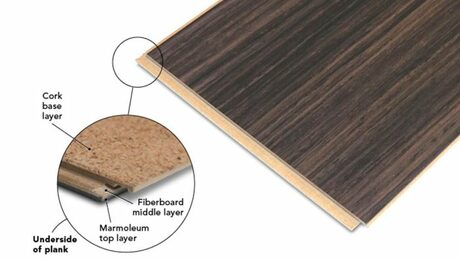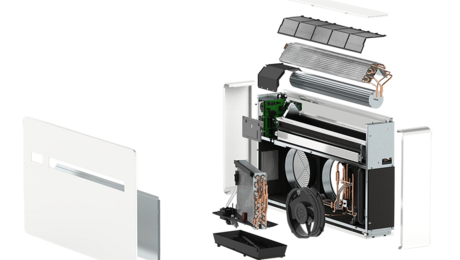Batteries on the jobsite
I often do simple carpentry (etc) work well away from mains power.
Chainsaw becomes a semi-precise tool by necessity. Cordless tools round out the bag.
Thing is, I would like a few other tools to fly with me. I could get a gas generator to put my already extensive AC tool-lot to use, or further round out the cordless arsenal as needed.
OR, I stumbled across these newer ‘power stations’ such as the EGO— essentially a big hunk of battery/inverter that acts as a geny for AC tools.
Anyone have any experience with them, or vaguely relevant philosophical musings?
GBA Detail Library
A collection of one thousand construction details organized by climate and house part









Replies
I can comment a bit on these as I’m an electrical engineer, but I haven’t actually tried one for anything like this.
Many of these inverters have issues starting beefy motors. Basically this means that while you may find they run a drill ok, they won’t start a big circular saw or table saw motor. They’ll also drain your battery FAST running anything heavy duty like a circular saw. The energy density in even the batteries is just a LOT less than the energy contained in liquid fuels like gasoline.
What these inverters might work well for us to run the chargers for your cordless tools, but many cordless tool lines now have “car chargers” that can charge the tool battery off of a 12v vehicle electric system. You could get a 12v deep cycle battery and use it as a portable power pack to run the tool charger. You can also get Lighter weight (for the same energy) lithium-based batteries from somewhere like https://www.bioennopower.com/ and use those to run the tool chargers.
You’ll find that running a 12v tool battery charger will be more efficient (more charges before the battery runs low) than using an inverter to power a 120v AC tool charger from a 12v battery. A pesky rule of physics is that every time you convert energy from one form to another, which includes changing voltages, you lose some of it, typically as heat. Fewer energy conversions allow more efficient use of an energy source, all other things being equal.
I wouldn’t plan on using an inverter system to make something big like a table saw or air compressor into a “cordless” tool. A generator is a better way to go for things like that unless you are only needing to use the heavier toilets for pretty short periods of time.
Bill
Thanks Bill. That all makes sense.
My case is actually one where I won't be running large load tools—mostly smaller universal motors like circ saws, angle grinders, sawzalls, etc. And I won't typically be using them for extended periods of time. Think building kiosks and foot bridges. (And like I said, chainsaw does most of the heavy lifting).
I'm mainly looking for ways to avoid buying a bunch of duplicate tools I already have corded versions of. That, and I always worry about the obsolescence of cordless tools given the somewhat steep curve of battery technology development. Hopefully tool makers (I use Milwaukee system) won't change the battery interface from what they have now anytime soon.
The power stations are actually overkill for what I need—capacity-wise, price-wise, and weight-wise. They're probably a worse fit for me than a genny. What I'd ideally like is to run universal motors direct (no inversion) off a singe larger battery, like an EGO 56V, 7.5 AH—which I already have for a mower). Basically trying to make do with less, not more.
I know the motors can handle the DC, but I'm not sure about all the specifics of the set-up and how practical or healthy for the tools it is. I obviously don't want to cannibalize the battery and I don't want to strain the 120v tool components (switches? other?) with the 56v DC.
In all likelihood, just getting the specific cordless tools I need is the smart and simple thing to do. I'll just hope they don't become obsolete in 4 years.
A typical circ saw is a beefy motor as far as most small inverters are concerned. I would expect the battery you mention to only be able to run a typical 15 amp circular saw for 7-8 minutes or so. If you work out the numbers you might thing that’s less than you’d expect, and here’s why: battery capacity does not scale linearly with load. That 7.5 Ah battery is rated at what they call the “20 hour” rate, which is the amp hour rating you get running whatever amount of load makes the battery last 20 hours. With a 7.5Ah battery, this means 375 milliamps. More load than that means lower amp hour capacity since batteries have lower capacity (not just shorter runtime) with heavier loads. With a really heavy load, it’s not unreasonable to derate a batteries amphour capacity by 40-50% or so.
You’re probably best off getting a brushless circular saw that uses the same battery system as your other cordless tools.
Bill
Tyler I have no personal experience but I do watch this YouTube channel he did a promo video for one and tortured it to see what would took to overload this one.
He was able to start a ½ HP induction motor vacuum pump close the valve and put the full load on the pump then start and run a small belt sander at the same time. The unit shut down when he added a angle grinder.
He ran a small window AC unit for about an hour.
https://www.youtube.com/watch?v=R9BLngeQ8SA
I am sticking with my Bosch battery tools but if you must run something not made for batteries like a vacuum pump for an hour and can’t use an outlet or a generator it could work for you.
Walta
I do hear good things about the Stihl battery chain saws.
https://www.stihlusa.com/products/chain-saws/battery-saws//msa200cbq/?rev=BVSpotlights
Walta
I have been using a Makita circular saw with two 18V batteries for about a year. I can basically use it all day. I framed a house with it recently.
Most big brands are addressing the obsolescence issue by sticking with one platform because they know once people are heavily invested that will not want to switch again.
I love my brushless tools. The newer generation of battery tools are just as good as plug in, my corded stuff is relegated to the shelf. Table saw is about the only plug in I use.
I have a 600W sine wave inverter in my car. It just about runs an angle grinder but not much more.
If I installed a larger 12V battery plus a bigger inverter (to be usable 2kW continuous is a good start), I could see it being a decent portable power station.
Most hybrids/evs can supply around 1.5kW of 12V and do so at an efficiency higher than any genny. A big 12V battery could than take up any peaks above the limit of the on-board dc/dc converter. Even a standard gas burner would have no problems with 1kW of 12V.